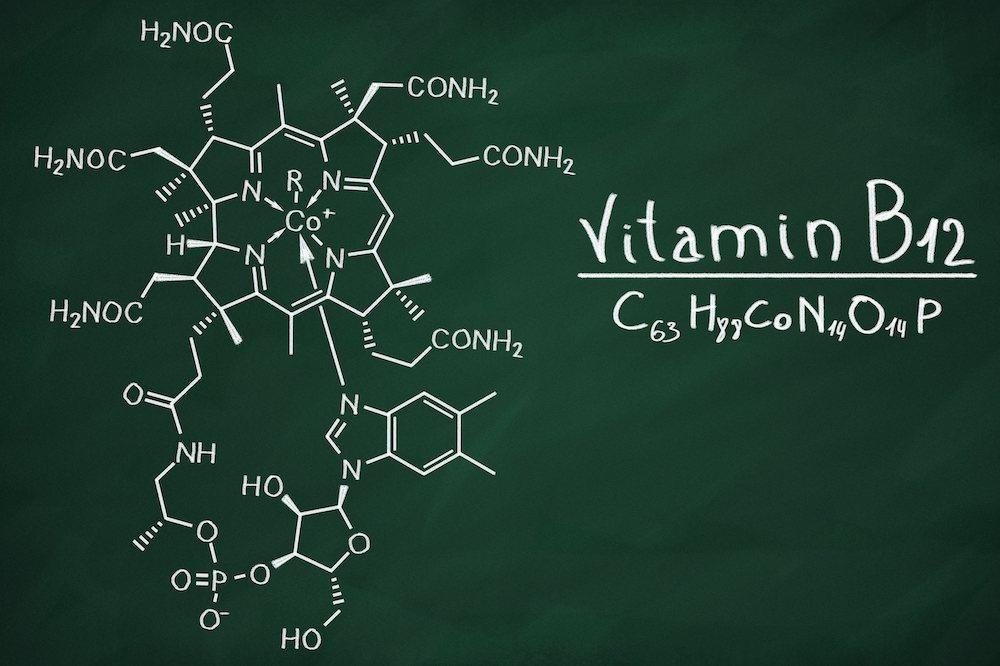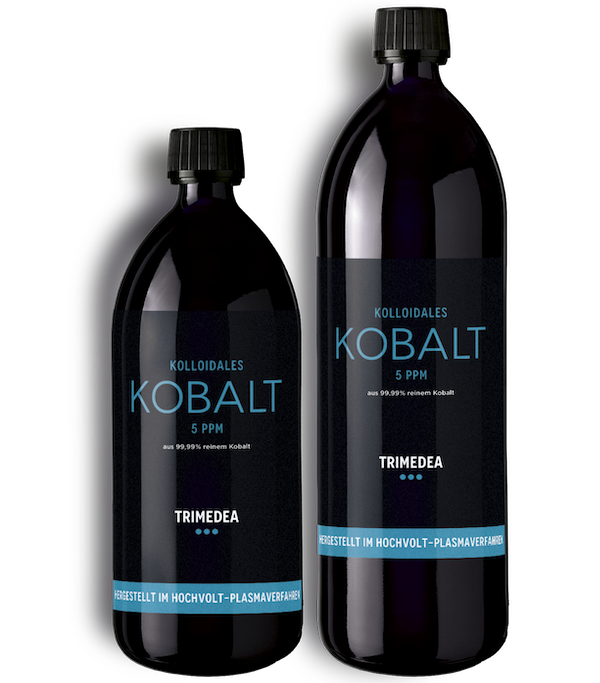Refill B12 reserves quickly and easily with colloidal cobalt
From our series: Colloidal metals
Vitamin B12 influences many crucial processes in our body. For example, it is important for cell division and blood formation as well as the function of the nervous system. A deficiency of vitamin B12 can lead to irreparable nerve damage.Is colloidal cobalt the solution?
Vitamin B12, also known as cobalamin, is absorbed through food. In order for us to utilize it, we need the intrinsic factor, which is formed in the stomach. In the small intestine, the vitamin B12 then binds to the intrinsic factor and passes through the lower part of the small intestine into the blood and from there to the organs and cells.
Cobalamin contains the trace element cobalt as its central atom. Although bioavailable cobalt is only required in very small quantities, it is significantly involved in many metabolic processes, such as fat, carbohydrate and protein metabolism, the formation of nucleic acids, neutrotransmitters and growth factors, and energy metabolism. The neutralization and conversion of harmful homocysteine via several intermediate steps is also one of its tasks. The switching on and off of genes is also influenced by cobalamin.
Vitamin B12 deficiency: causes and symptoms
Vitamin B12 deficiency can cause severe and irreversible damage, especially to the nervous system and brain. Sometimes the nerve damage does not disappear completely even after the levels have been compensated. The probability of complete recovery decreases with the length of time over which the neurological symptoms have been present.
People with gastric or small intestinal disorders often have a problem absorbing sufficient amounts of bioavailable cobalt (cobalamin). This results in a variety of disorders and limitations.
.
Symptoms of B12 deficiency
- Nerve disorders, neuropathies
- Gait unsteadiness
- Muscle weakness and anemia
- Chronic fatigue and sleep disorders
- Headaches, depression, confusion
Possible causes for B12 deficiency
- Vegetarian or vegan diet
- Deficiency of the protein intrinsic factor
- Chronic inflammation of stomach and intestines (Crohn’s disease, chronic gastritis, celiac disease)
- Taking medications such as metformin, antacids or proton pump inhibitors
When should vitamin B12 deficiency be treated?
Normally, a deficiency of cobalamin develops over years. The average daily requirement is about four micrograms; our body keeps about 5,000 micrograms in stock at all times. In blood serum, a level of 250-1,100 pg/ml is normal. A serum level below 200 pg/ml, or 150 pmol/l, indicates an absorption disorder or insufficient intake. In the high-dose therapy that is then customary, the patient receives 500 to 3,000 micrograms of vitamin B12 – either as an infusion or as an intramuscular injection.
With colloidal cobalt against vitamin B12 deficiency
With colloidal cobalt, on the other hand, replenishing empty stores is quick and painless. Colloidal cobalt is 100 percent bioavailable and does not have to go the long way through the stomach and small intestine to be usable for the metabolism. On the contrary, people with the stomach and intestinal disorders described above can replenish their cobalt stores with colloidal cobalt (real colloids produced using the high-voltage plasma process) without any risks or side effects. More about metal colloids can be found here.
Ein Liter kolloidales Kobalt mit 5 ppm enthält 5 mg reines bioverfügbares kolloidales Kobalt. Bei einer täglichen Einnahme von 25 ml (halbes Messglas) sind das pro Tag 0,125 mg = 125 μg reines, verfügbares Kobalt. Im Gegensatz dazu sind bei der Einnahme von Vitamin B12 oder Cobalamin je nach Applikation (oral, Infusion, Injektion) höchstens 10 bis 30 Prozent für den Körper nutzbar – der Rest wird wieder ungenutzt ausgeschieden. Vor allem bei funktionellen Aufnahmestörungen von Vitamin B12 bietet das kolloidale Kobalt von Trimedea eine sichere und schnelle Lösung.


